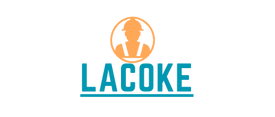What Are the Different Types of Loans and How Do They Work?
When it comes to borrowing money, there are various types of loans available to individuals, businesses, and even governments. Each loan type has distinct characteristics, repayment terms, interest rates, and requirements. Understanding the different types of loans and how they work can help you make informed decisions regarding borrowing money.
Types of Loans
Loans can be broadly categorized based on their purpose, repayment schedule, and security type. Let’s dive into the different types of loans available and how they function:
1. Personal Loans
Personal loans are unsecured loans that individuals can borrow from financial institutions such as banks, credit unions, or online lenders. These loans are typically used for personal purposes like paying off medical bills, consolidating debt, home renovations, or funding a vacation. Since personal loans are unsecured, they do not require collateral, making them a riskier option for lenders.
How They Work:
- Loan Amount: Generally ranges from a few hundred to several thousand dollars.
- Interest Rates: Can vary depending on the borrower’s credit score and financial history.
- Repayment Terms: Typically range from 1 to 5 years.
- Pros: Quick approval, no collateral required, fixed interest rates.
- Cons: Higher interest rates than secured loans, especially for individuals with poor credit.
2. Mortgage Loans
A mortgage loan is a loan used to purchase real estate. The property itself serves as collateral for the loan. Mortgage loans are one of the most common forms of borrowing, with long repayment terms (usually 15 or 30 years). These loans typically come with lower interest rates compared to other types of loans, as the lender has collateral in case of default.
How They Work:
- Loan Amount: Varies based on the value of the property.
- Interest Rates: Fixed or adjustable rates, generally lower than personal loans.
- Repayment Terms: Typically 15 to 30 years.
- Pros: Lower interest rates, tax benefits (in some cases), long repayment terms.
- Cons: Requires a down payment, long approval process, risk of foreclosure if payments are not made.
3. Auto Loans
Auto loans are loans used specifically for purchasing a vehicle. These loans are secured by the vehicle being purchased, meaning if the borrower fails to make payments, the lender can repossess the car. Auto loans usually have shorter repayment terms than mortgages, often between 3 to 7 years.
How They Work:
- Loan Amount: The loan is typically the price of the car minus the down payment.
- Interest Rates: Can be higher for used cars than for new cars.
- Repayment Terms: Typically 3 to 7 years.
- Pros: Competitive interest rates, fast approval, used car loans available.
- Cons: Vehicle depreciation, potential for repossession if payments are missed.
4. Student Loans
Student loans are designed to help students pay for their education-related expenses, such as tuition, books, and living costs. They come in two main types: federal student loans and private student loans. Federal student loans usually offer better interest rates and more flexible repayment options compared to private loans.
How They Work:
- Loan Amount: Varies based on tuition costs and other educational expenses.
- Interest Rates: Federal loans tend to have lower interest rates compared to private loans.
- Repayment Terms: Repayment often begins after graduation, with varying term lengths.
- Pros: Lower interest rates for federal loans, deferment options.
- Cons: Loans may accumulate significant debt, interest may accumulate during school, repayment can be lengthy.
5. Credit Card Loans
Credit card loans are a type of revolving credit. Essentially, you are borrowing money from the credit card issuer whenever you make a purchase, up to a certain limit. Credit card loans typically come with higher interest rates than personal loans or mortgages and are often used for short-term borrowing needs.
How They Work:
- Loan Amount: Based on your credit limit, which can be increased with good credit.
- Interest Rates: Often higher than other types of loans.
- Repayment Terms: Flexible, but interest rates can increase if payments are not made on time.
- Pros: Flexible borrowing and repayment options, no collateral required.
- Cons: High-interest rates, potential for debt accumulation.
6. Payday Loans
Payday loans are short-term, high-interest loans designed to provide borrowers with quick cash before their next payday. These loans often come with extremely high interest rates and fees, making them a risky borrowing option. They are typically used by individuals who are facing an immediate financial emergency but should be avoided if possible.
How They Work:
- Loan Amount: Small amounts, often less than $1,000.
- Interest Rates: Extremely high, sometimes in the triple digits.
- Repayment Terms: Typically due on the borrower’s next payday.
- Pros: Fast approval and access to funds.
- Cons: Very high-interest rates, can lead to a cycle of debt, short repayment term.
7. Home Equity Loans and Home Equity Lines of Credit (HELOC)
Home equity loans and HELOCs allow homeowners to borrow money using the equity they’ve built in their homes as collateral. A home equity loan is a lump sum loan, whereas a HELOC functions more like a credit card, allowing the borrower to borrow against their home’s equity as needed.
How They Work:
- Loan Amount: Based on the amount of equity in the home.
- Interest Rates: Often lower than other types of loans due to being secured by the home.
- Repayment Terms: Home equity loans typically have fixed repayment terms, while HELOCs have variable terms.
- Pros: Lower interest rates, large loan amounts, and tax benefits in some cases.
- Cons: Risk of losing your home if you default on the loan.
8. Business Loans
Business loans are designed to help companies finance their operations, expand their business, or cover unexpected expenses. These loans come in a variety of forms, including term loans, SBA loans, and business lines of credit. Business loans can be secured or unsecured, depending on the terms set by the lender.
How They Work:
- Loan Amount: Depends on the size of the business and the purpose of the loan.
- Interest Rates: Typically based on the company’s creditworthiness and the type of loan.
- Repayment Terms: Varies, but typically between 1 and 10 years.
- Pros: Can help businesses grow and manage cash flow.
- Cons: Requires a strong business plan and proof of financial stability, can be difficult for new businesses to obtain.
9. Debt Consolidation Loans
Debt consolidation loans are loans that combine multiple debts into one single loan with a potentially lower interest rate. These loans are often used by individuals who have several high-interest loans or credit card balances and want to simplify their debt management.
How They Work:
- Loan Amount: Equal to the total amount of debt being consolidated.
- Interest Rates: Often lower than the rates on the original debts.
- Repayment Terms: Typically 3 to 5 years.
- Pros: Simplifies debt management, potential to lower interest rates.
- Cons: May require good credit, can extend the repayment period.
10. FHA Loans
FHA loans are loans insured by the Federal Housing Administration, designed to help first-time homebuyers or those with less-than-perfect credit. These loans offer lower down payment requirements and more flexible credit score requirements than conventional mortgages.
How They Work:
- Loan Amount: Based on the value of the home and the buyer’s ability to repay.
- Interest Rates: Typically lower than conventional loans.
- Repayment Terms: Usually 15 or 30 years.
- Pros: Low down payment, easier to qualify for.
- Cons: Requires mortgage insurance, which adds to the cost of the loan.
Conclusion
Understanding the different types of loans available can help you choose the best borrowing option based on your needs. Whether you are looking to purchase a home, finance your education, or manage your business operations, there are various loan products designed for specific purposes. However, it is essential to consider factors such as the interest rate, repayment terms, and the risk involved before taking out any loan. Always take time to carefully assess your financial situation and choose a loan that fits your goals and budget.
By comparing the different types of loans and their terms, you can make an informed decision that will set you up for financial success.

